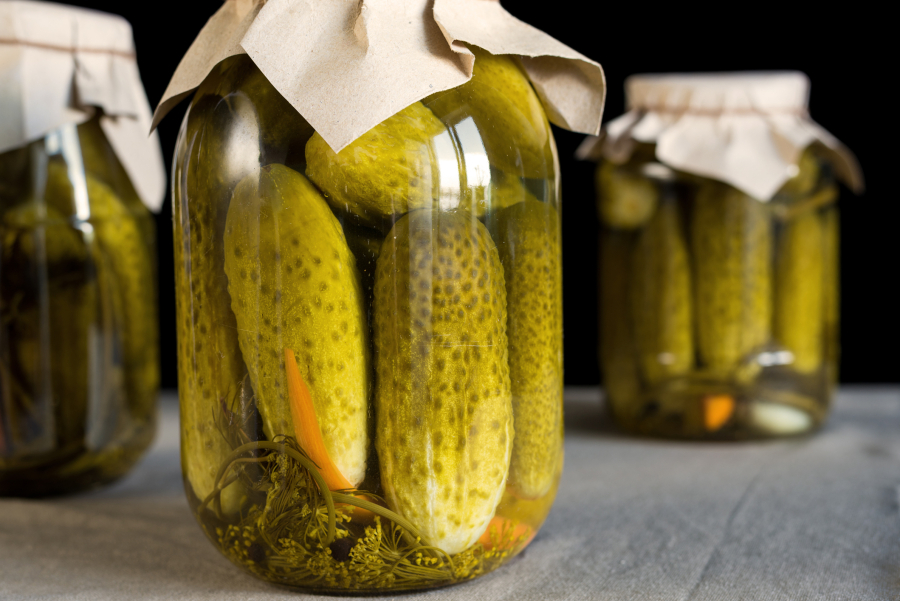It’s pickle season and for the perfect pickle you need a pickling cucumber. At the farmers markets and produce stands May through late September, you’ll find three varieties of cucumbers: pickling, slicing, and seedless. Compared to slicing cucumbers, picklers tend to be shorter, less regularly shaped, have bumpy skin, are never waxed and come in colors from pale to dark green with a touch of yellow sometimes where they were laying on the ground. The skin of a pickling cucumber is less bitter than slicing cucumbers, has fewer and smaller seeds, thus making it the perfect choice to choose to make a delicious pickle.
Pickling is one of the oldest methods of food preservation. As early as the third century B.C., the Chinese were fermenting vegetables. The pickle barrel was a common sight during the colonial days in the U.S. and in the early 1920s, the USDA published its first instructions on making a safe pickle at home. Some practices have changed since then but many of them are still used today.
One cup chopped or diced cucumber, dill or kosher dill has only 17 calories and high amounts of vitamins A and K. If the pickle is fermented, it is also an excellent source of probiotics. One cup of sweet pickle slices, however, have 139 calories due to the large amount of sugar used. All types of pickles are high in sodium, unless you make a low-sodium pickle, which only can be done with a quick pickle.
When buying pickling cucumbers choose firm, heavy cucumbers with no blemishes of the same uniform size and shape. They’ll be bumpy with a matte, nonwaxy skin and a fairly even color from light to dark green. The ideal size for a dill pickle is 4 inches and straight for easy packing into the jar. Gherkins, also known as cornichons, baby dills or baby pickles, are usually 1 1/2 inches. Use odd-shaped and more mature cucumbers for relishes and bread-and-butter-style pickles.



